Top 8 Best 10 GPM Tankless Water Heaters (February 2026)🥇
Last Updated: 26 February 2026
In this article, we’re going to be discussing the best 10 gallons per minute tankless hot water heaters that are available on the market.
✅Why use a tankless water heater for your home?
According to this study carried out by Consumer Reports, tankless water heaters are an energy-efficient way of getting hot water.
Their ability to process large amounts of water without storing it allows these models to consume 22% less energy than tank-carrying water heaters.
Their space-saving design is another notable feature of tankless heaters. Since they don’t have to use tanks to store water, these products can afford to be small and compact.
This is precisely the reason why you can install them in tight spaces with minimal fuss.
On top of everything else, these units justify their high initial asking price by delivering a constant supply of hot water.
When a hot water tap is opened, an electric element or gas burner heats the water as it travels through the pipe. That means you won’t have to wait to get hot water at the tap.
💧Top Considerations Before Purchasing
- Technical Specs – We’ve done our very best to outline each heater’s technical specs, including thermal efficiency, flow rate (GPM), energy factor and temperature range, so you have all of this information available when making any comparisons between models.
- General Specs – We’ve also included information regarding the units physical dimensions and weight
- Price – Price information has also been specified, with $ representing the lowest price and $$$$$ representing the highest. We realize that everyone has a unique budget, so this is an important consideration
- Warranty – We’ve displayed warranty information where possible.
- Customer Reviews/Ratings – We’ve gone about researching only the highest quality tankless water heaters to include within this article, therefore you can be confident in knowing that any of these units are a great choice.
We’ve listed the following tankless water heaters in order of cost, from the lowest price at the top ($) to the largest price ($$$$$) at the bottom:
Best 10 GPM Tankless Water Heaters Review – Top 8
- Takagi T-H3-DV-N – Indoor – Natural Gas – 10 GPM – $ – Skip to section
- Rinnai CU199iP – Indoor – Propane – 11 GPM – $$ – Skip to section [Ideal for Residential & Commercial Usage + Great Functionality/Warranty]
- Rinnai RU180iN – Indoor – Natural Gas – 10 GPM – $$$ – Skip to section
- Rinnai RU180iP – Indoor – Propane – 10 GPM – $$$ – Skip to section
- Takagi TK-540P-NIH – Indoor – Natural Gas – 10 GPM – $$$ – Skip to section
- Rinnai RU199iN – Indoor – Natural Gas – 11 GPM – $$$$ – Skip to section
- Rinnai RU199iP – Indoor – Propane – 11 GPM – $$$$ – Skip to section
Takagi T-H3-DV-N – Indoor – Natural Gas – 10 GPM – $
Technical Specs
- Max BTU: 199,000
- Energy Factor: 0.95
- Flow Rate (GPM): 10GPM
- Temperature Range: N/A to 185°F
Takagi T-H3-DV-N: Full Technical Specs
General Specs
- Usage: Commercial/Large Home
- Price: $
- Dimensions: 22.5H x 17.75W x 10.75D inches
- Weight: 59 lbs
- Warranty: Residential Warranty (15-year) / Commercial Warranty (5-year)
Features
The Takagi T-H3-DV-N is well suited for both residential & commercial applications, such as for usage in small restaurants, shops, and beauty salons.
It complies with Ultra-Low NOx regulations and is certified for use in environments up to 10,100 ft. altitude.
This unit is ENERGY STAR® qualified and is NSF certified for commercial applications.
It utilizes commercial-grade copper alloy for the heat exchanger tubing, for 25x better heat transfer when comparing against stainless steel.
Its secondary heat exchanger utilizes 316L stainless steel for better corrosion resistance.
Additionally, the T-H3 is also suitable for heavier residential usages such as space heating or domestic recirculation systems.
Finally, its safety features include freeze, overheat, surge protection, and troubleshooting diagnostic codes.
Pros
- Reputable brand
- Very affordable
- Efficiently designed and manufactured
- Easy to install
- Great reviews on Amazon
Cons
- Not much
Rinnai CU199iP – Indoor – Propane – 11 GPM – $$
Ideal for Residential & Commercial Usage + Great Functionality/Warranty
Technical Specs
- Max BTU: 199,000
- Energy Factor: 0.97
- Flow Rate (GPM): 11GPM
- Temperature Range: 98 to 185°F
Rinnai CU199iP: Full Technical Specs
General Specs
- Usage: Commercial/Large Home
- Price: $$
- Dimensions: 26.4H x 18.5W x 11.4D inches
- Weight: 64 lbs
- Warranty: 6-year on heat exchanger, 5-year on parts, 2-year on labor
Features
The CU199iP commercial condensing tankless water heater from Rinnai is precision-engineered to provide an endless amount of hot water for the most demanding of applications such as restaurants, hospitality, education institutions, multifamily residential buildings and more.
It’s designed for indoor installation and uses propane gas fuel.
It has WiFi capability which can be used to monitor performance across multiple units to ensure uptime is maintained.
There are multiple venting options that offer installation flexibility to meet your existing layout or for new build optimization.
This unit is certified as a commercial ENERGY STAR® rating.
Pros
- Reputable brand
- Very affordable
- Efficiently designed and manufactured
- Built for commercial usage
- Great warranty
- Wide temperature capability
- WIFI uptime monitoring
Cons
- Only comes with black aesthetic
Rinnai RU180iN – Indoor – Natural Gas – 10 GPM – $$$
Technical Specs
- Max BTU: 180,000
- Energy Factor: 0.95
- Flow Rate (GPM): 10GPM
- Temperature Range: 98 to 120°F
Rinnai RU180iN: Full Technical Specs
General Specs
- Usage: Commercial/Large Home
- Price: $$$
- Dimensions: 31.3H x 18.5W x 11.45D inches
- Weight: 64 lbs
- Warranty: 15-year on heat exchanger, 5-year on parts
Features
Rinnai RU180iN’s tankless water heater utilizes SENSEI™ technology, which provides a better experience for both users and installers alike, with simple installation, serviceability, efficient performance, and flexible venting options.
The Rinnai SENSEI™ series water heaters feature a fiber mesh premix burner that provides an even flame distribution for optimal performance and efficiency.
An easily accessible control panel and parameter adjustment allow for fast and simple servicing.
A corrosion-resistant stainless steel heat exchanger, integrated check valve, and included safety devices allow for powerful and efficient water heating for years to come.
It complies with Ultra-Low NOx regulations and is certified for use in environments up to 10,100 ft. altitude.
This unit is ENERGY STAR® qualified and is NSF certified for commercial applications.
It has WiFi capability which can be used to monitor performance across multiple units to ensure uptime is maintained.
Pros
- Reputable brand
- Mid-range
- Efficiently designed and manufactured
- Built for residential & commercial usage
- Great warranty
- WIFI uptime monitoring
Cons
- Narrower temperature range than other units
Rinnai RU180iP – Indoor – Propane – 10 GPM – $$$
Technical Specs
- Max BTU: 180,000
- Energy Factor: 0.95
- Flow Rate (GPM): 10GPM
- Temperature Range: 98 to 120°F
Rinnai RU180iN: Full Technical Specs
General Specs
- Usage: Commercial/Large Home
- Price: $$$
- Dimensions: 31.3H x 18.5W x 11.45D inches
- Weight: 64 lbs
- Warranty: 15-year on heat exchanger, 5-year on parts
Features
Rinnai RU180iP’s tankless water heater utilizes SENSEI™ technology, which provides a better experience for both users and installers alike, with simple installation, serviceability, efficient performance, and flexible venting options.
The Rinnai SENSEI™ series water heaters feature a fiber mesh premix burner that provides an even flame distribution for optimal performance and efficiency.
An easily accessible control panel and parameter adjustment allow for fast and simple servicing.
A corrosion-resistant stainless steel heat exchanger, integrated check valve, and included safety devices allow for powerful and efficient water heating for years to come.
It complies with Ultra-Low NOx regulations and is certified for use in environments up to 10,100 ft. altitude.
This unit is ENERGY STAR® qualified and is NSF certified for commercial applications.
It has WiFi capability which can be used to monitor performance across multiple units to ensure uptime is maintained.
Pros
- Reputable brand
- Mid-range
- Efficiently designed and manufactured
- Built for residential & commercial usage
- Great warranty
- WIFI uptime monitoring
Cons
- Narrower temperature range than other units
Takagi TK-540P-NIH – Indoor – Natural Gas – 10 GPM – $$$
Technical Specs
- Max BTU: 199,000
- Energy Factor: 0.95
- Flow Rate (GPM): 10GPM
- Temperature Range: N/A to 140°F
Takagi TK-540P-NIH: Full Technical Specs
General Specs
- Usage: Commercial/Large Home
- Price: $$$
- Dimensions: 23.6H x 17.75W x 11.25D inches
- Weight: 61 lbs
- Warranty:
- Residential: 15-year heat exchanger, 5-year parts, 1-year labor
- Commercial: 6-year heat exchanger, 5-year parts, 1-year labor
Features
TK-540P-NIH series integrates a recirculation pump to provide instant hot water in residential applications with dedicated recirculation lines.
The pump is easily controlled with a simple user interface and multiple pump settings allow you to customize pump operation to meet your needs while maximizing heater efficiency.
This 10 gallon per minute tankless water heater is ENERGY STAR® qualified and complies with SCAQMD 1146.2 Ultra-Low NOx regulations of less than 14 ng/J (<20ppm).
Its primary heat exchanger is constructed of a commercial-grade copper that is more resilient to erosion.
The secondary heat exchanger is made of type 316L stainless steel to protect against corrosion.
Finally, it’s safety features include Air-Fuel ratio (AFR) sensor, freeze protection, overheat cut-off fuse, exhaust & water temperature safety control, and troubleshooting diagnostic codes
Pros
- Reputable brand
- Mid-range price
- Efficiently designed and manufactured
- Built for residential & commercial usage
- Great warranty
Cons
- Narrower temperature range than other units
Rinnai RU199iN – Indoor – Natural Gas – 11 GPM – $$$$
Technical Specs
- Max BTU: 199,000
- Energy Factor: 0.93
- Flow Rate (GPM): 11GPM
- Temperature Range: 98 to 185°F
Rinnai RU199iN: Full Technical Specs
General Specs
- Usage: Commercial/Large Home
- Price: $$$$
- Dimensions: 26.4H x 18.5W x 11.5D inches
- Weight: 64 lbs
- Warranty:
- Residential: 15-year heat exchanger, 5-year parts, 1-year labor (5-year optional on labor)
- Commercial: 8-year heat exchanger, 5-year parts, 1-year labor (2-year optional on labor)
Features
The Rinnai RU199iN tankless water heater uses up to 40% less energy than a traditional tank water heater, with technology that operates only when hot water is needed, super-efficient heating coils, no pilot light and no storage tank to heat and reheat water, you save on energy and utility costs.
Plus, with premium technology, increased energy efficiency, an improved Home Energy Rating System (HERS) Index Score and optimized LEED eligibility, this tankless solution can increase your home’s value.
You can even qualify for energy efficiency rebates and tax credits. It’s a smart investment for now and the future.
It is ENERGY STAR qualified with Uniform Energy Factor of 0.93,
It features a temperature lock function prevents accidental or unauthorized changes to water temperature.
Additionally, it has WIFI integration for monitoring purposes.
Pros
- Reputable brand
- Mid-range price
- Efficiently designed and manufactured
- Built for residential & commercial usage
- Great warranty
Cons
- Premium-priced
Rinnai RU199iP – Indoor – Propane – 11 GPM – $$$$
Technical Specs
- Max BTU: 199,000
- Energy Factor: 0.93
- Flow Rate (GPM): 11GPM
- Temperature Range: 98 to 185°F
Rinnai RU199iP: Full Technical Specs
General Specs
- Usage: Commercial/Large Home
- Price: $$$$
- Dimensions: 26.4H x 18.5W x 11.5D inches
- Weight: 64 lbs
- Warranty:
- Residential: 15-year heat exchanger, 5-year parts, 1-year labor (5-year optional on labor)
- Commercial: 8-year heat exchanger, 5-year parts, 1-year labor (2-year optional on labor)
Features
The Rinnai RU199iP tankless water heater uses up to 40% less energy than a traditional tank water heater, with technology that operates only when hot water is needed, super-efficient heating coils, no pilot light and no storage tank to heat and reheat water, you save on energy and utility costs.
Plus, with premium technology, increased energy efficiency, an improved Home Energy Rating System (HERS) Index Score and optimized LEED eligibility, this tankless solution can increase your home’s value.
You can even qualify for energy efficiency rebates and tax credits. It’s a smart investment for now and the future.
It is ENERGY STAR qualified with Uniform Energy Factor of 0.93,
It features a temperature lock function prevents accidental or unauthorized changes to water temperature.
Additionally, it has WIFI integration for monitoring purposes.
Pros
- Reputable brand
- Mid-range price
- Efficiently designed and manufactured
- Built for residential & commercial usage
- Great warranty
Cons
- Premium-priced
Rinnai CU199iN – Indoor – Natural Gas – 11 GPM – $$$$$
Technical Specs
- Max BTU: 199,000
- Energy Factor: 0.97
- Flow Rate (GPM): 11GPM
- Temperature Range: 98 to 185°F
Rinnai CU199iN: Full Technical Specs
General Specs
- Usage: Commercial/Large Home
- Price: $$$$$
- Dimensions: 26.4H x 18.5W x 11.4D inches
- Weight: 64 lbs
- Warranty: 6-year on heat exchanger, 5-year on parts, 2-year on labor
Features
The CU199iN commercial condensing tankless water heater from Rinnai is precision-engineered to provide an endless amount of hot water for the most demanding of applications such as restaurants, hospitality, education institutions, multifamily residential buildings and more.
It’s designed for indoor installation and uses propane gas fuel.
It has WiFi capability which can be used to monitor performance across multiple units to ensure uptime is maintained.
There are multiple venting options that offer installation flexibility to meet your existing layout or for new build optimization.
This unit is certified as a commercial ENERGY STAR® rating.
Pros
- Reputable brand
- Very affordable
- Efficiently designed and manufactured
- Built for commercial usage
- Great warranty
- Wide temperature capability
- WIFI uptime monitoring
Cons
- Premium-priced
Conclusion
It’s important to highlight that we realize everyone has different needs and requirements for a 10 GPM tankless hot water heater, alongside an entirely different budget.
However, we personally like the Rinnai CU199iP – Indoor – Propane – 11 GPM – $$ – Skip to section [Ideal for Residential & Commercial Usage + Great Functionality/Warranty] as it has a great warranty (6-years), the widest temperature range we’ve seen (98 to 185°F), a high energy efficiency (97%), a max BTU of 199,000 and a flow rate of 11. Not to mention it’s one of the more affordable units.
If you have any questions, please leave a comment down below.
Frequently Asked Questions
Here are some of the FAQs related to 10 GPM tankless water heaters:
💧What is a 10 GPM water heater?
GPM stands for Gallons Per Minute. Therefore, it’s simply a tankless water heater than can provide 10 gallons of hot water per minute.
Tankless water heaters heat only as much water as needed, when it is needed. They heat water on demand and use 24 to 34% less energy than traditional water heaters. They are made for applications whose consumption of hot water is more than that of residential use.
You can count on these units to provide as much as 15.2 liters of hot water per minute. Most of them come with a warranty of more than 20 years. Their shelf-life can be further extended due to these heaters having replaceable parts, which you can easily exchange when they go bad.
🚰What are the benefits of 10GPM tankless water heaters?
Following are the major benefits of using a tankless water heater on your premises:
1. Energy Efficiency
An estimate by the US Department of Energy explains how energy-efficient tankless water heaters are vis-à-vis their traditional tank-carrying counterparts.
Provided you have a small business that needs less than 41 gallons of hot water daily, a tankless water heater will be 24% – 34% more energy-efficient than a conventional heater.
Even if your hot water requirements are enormous – up to 86 gallons per day – these units will still be 8% to 14% more energy efficient than their tank-carrying colleagues.
2. Lower Utility bills
As we have already proved it beyond doubt that these units use less energy, you shouldn’t have any trouble believing the fact that these units can also lower your utility bills.
Energy Star estimates that tankless water heaters bearing its certification can save a household of four over $1800 over its lifetime, compared with any conventional tank-type heater.
The beneficial impact of these heaters isn’t related to household applications. That’s why the market of tankless heaters is projected to grow at a rate of 7.5% per annum between 2019 and 2025.
3. Extended lifespan
The absence of the tank not only empowers these units to deliver hot water on demand. It also enables them to last longer than tank-carrying water heaters.
Various estimates claim that with provided you maintain it regularly, you can count on your tankless heater to last five years longer than the tank water heater.
Provided you look after your model more carefully, it will outlast a similar-capacity tank-carrying model by over 10 years, with the overall shelf-life of tankless heaters rated at up to 20 years.
4. Endless hot water
Do you know why the majority of their users refer to tankless water heaters as on-demand units? That’s because they deliver as much water as needed, when it is needed.
These units never run out of water because the water supply of your entire unit is the heater’s water supply. They don’t have any specific tank which they have to tap into to get their water.
As a result, with their built-in heating elements heating cold water as it passes through the pipes (and before it reaches your tap), you’ll get a constant supply of hot water.
5. Space-saving design
Traditional tank-carrying heaters hold up to 60 gallons of water and therefore measure about 24 inches wide and 60 inches tall. That is the space they will consume in your premises.
In contrast, even the biggest capacity tankless water heaters measure 28 inches tall and 20 inches wide. This allows them to take up far less space in your indoors.
💧How to choose the right 10 GPM tankless water heater?
Here’s how you can choose the right tankless water heater for your needs:
Choose Energy Star® heater
Regardless of whether you intend to purchase an electric or gas tankless water heater, make sure it comes with Energy Star certification. Gas tankless heaters bearing the Energy Star logo employ more efficient heat exchangers and use 15 percent less energy than other commercial units.
Electric units with the Energy Star logo, meanwhile, use a refrigerant-based system to transfer ambient heat to the water. This allows them to use less than half of the energy that other electric-powered tankless units consume to raise the temperature of water.
Select the right drain valve
Most of you might not be aware of the fact that it’s crucial for the performance of the heater that you flush it regularly. Constant draining helps prevent the build-up of sediments in the pipes and maintain the quantity of the water heated. It also increases the lifespan of the system.
Drain valves are mostly made of three materials: plastic, composite, and brass. Plastic is undoubtedly the cheapest of the three but it is also the least trustworthy. Brass deserves your attention if you want a valve that can last longer, handle higher temperatures as well as flow rates of up to 100 gallons.
Choose higher Energy Factor
Energy Factor is a fancy term used to describe the heater’s energy efficiency. It is calculated by estimating the amount of energy the heater uses to heat water and dividing it with the total amount of energy that powers the unit.
That means that the higher the energy factor, the more efficient will be your tankless water heater. Most gas tankless models that you see on the market have their energy factor between 0.5 and 0.9. The best electric tankless heaters, meanwhile, have an energy factor of 0.99.
Pro Tip: Even though electric heaters have a higher energy factor than gas-powered models, electricity costs three times as much as natural gas in the US. So you need to keep both factors in mind (Energy Factor and Cost of Fuel) before deciding in favor of either of these units.
Select a wider temperature range
The wider the temperature range of a heater, the more easily it will cater to different applications. You can understand this point by determining the purpose for which you use different hot water faucets in your residential applications.
While the one that is used to supply water for making coffee needs to receive water at a much higher temperature, the other that only supplies water to the washing machine can make do with slightly lukewarm water. It’s therefore recommended that you get a heater with a wider temperature range.
🚰What are the different types available?
Other than different sizes, I.E 5 GPM Tankless Water Heaters, most of you might already know that tankless water heaters are available in two types: electric- and gas-powered. Both of them have their pros and cons which make them suitable for a certain audience and unfit for others.
That’s why in this section we’re going to compare electric and gas tankless heaters on various factors. We’re also going to shed light on the various types of gas-powered models. So you could make an informed decision as to which of them will best fit your requirements.
Cost
There are two costs which you need to consider when shopping heaters:
- Capital or Up-front cost: Electric tankless water heaters cost less upfront than their gas-powered counterparts. While you can get them between $500 and $700, you might have to fork out more than $1000 to purchase a heavy-duty gas tankless heater.
- Running cost: The lower up-front cost of electric heaters isn’t due to their poor design or because they employ a cheap material of construction. They are as sturdy as gas models. Instead, it’s the low running cost of gas-powered heaters that raises their upfront cost.
Ease of installation
Electricity-powered tankless heaters are easy to install. Here’s why:
- Electric Tankless Heaters: Installing these models is a cinch. All you need to do to get them up and running is to install their one end to your home’s water supply line, the other end to the pipe that takes water from the heater to your appliances and hook them with a power connection.
- Gas Tankless Heaters: Here’s why gas-powered models are difficult to install. Aside from giving them all the connections that we mentioned in the previous paragraph, you’ve to provide these heaters with a fresh air supply, a fitting gas line size, and a venting option.
Type
Unlike their one-type-fits-all electric colleagues, gas heaters are available in two types:
- Propane Tankless Heaters: Since natural gas isn’t offered in all areas, propane heaters are a better option for those of you living in far-flung areas. Other than that, there is no tangible benefit of propane heaters vis-à-vis their natural gas cousins.
- Natural Gas Tankless Heaters: Natural gas is a cheaper alternative to propane, is safe to use (as it’s lighter than propane and dissipates in the air more readily in the case of leakage), and don’t require you to store a gas cylinder.
Hot water delivery
Gas-powered models rule the roost in this case. Here’s why:
- Electric Tankless Heaters: Due to the bottlenecks in their design, even the best electric tankless water heaters won’t be able to deliver more than 8GPM of water. That limits their utility to small and medium-sized applications.
- Gas Tankless Heaters: Provided you are supplying them with natural gas (or have a huge propane cylinder connected to them), gas tankless heaters will pay back by supplying over 5 GPM of hot water. That’s why they are best suited for a large-size business enterprise.
Maintenance requirements
Gas-powered models require more maintenance. Here’s why:
- Electric Tankless Heaters: These models come with a pre-filter that prevents sedimentation, an inlet filter and a valve using which you should flush the entire unit annually. Only these three parts require major maintenance, and that too only once or twice a year.
- Gas Tankless Heaters: Their complex construction makes these models hard to maintain. You’ll have to pay a licensed technician to check they are combusting fuel safely and the vent is performing as intended. Their heat exchange also needs service on a regular basis.
Ease of troubleshooting
Electricity-powered models require more maintenance. Here’s why:
- Electric Tankless Heaters: Provided something goes awry with these models, it would be easy for the homeowner to use the display panel to troubleshoot, diagnose, and repair the problem. These units are more eco-friendly as well.
- Gas Tankless Heaters: Since they have a complex heat exchanger, gas-powered models can be difficult to get back to action if they start misbehaving. You’ll have to pay a licensed plumber to get them back up and running.
Final Verdict – Electric or Gas?
Both of them are intended to serve a different set of audiences. Here’s how:
- Electric Tankless Water Heaters: Go for these heaters if you can’t afford to pay more upfront, want a heater that is safer to use indoors, has a lower carbon footprint, and can be easy to repair when the problems arise.
- Gas Tankless Water Heaters: Go for these heaters if you prefer a lean gas bill at the end of the month, do not care about the environment, and have the temperament (as well as the budget) to hire a technician to install them once and repair or maintain them frequently.






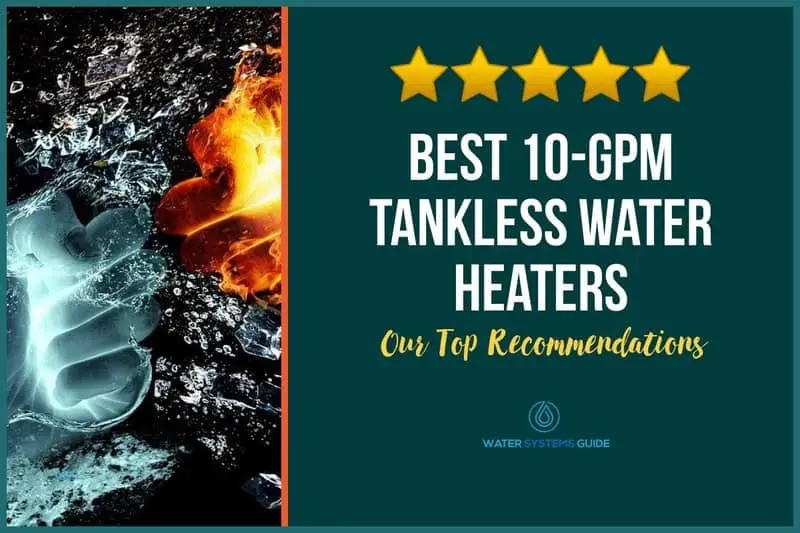








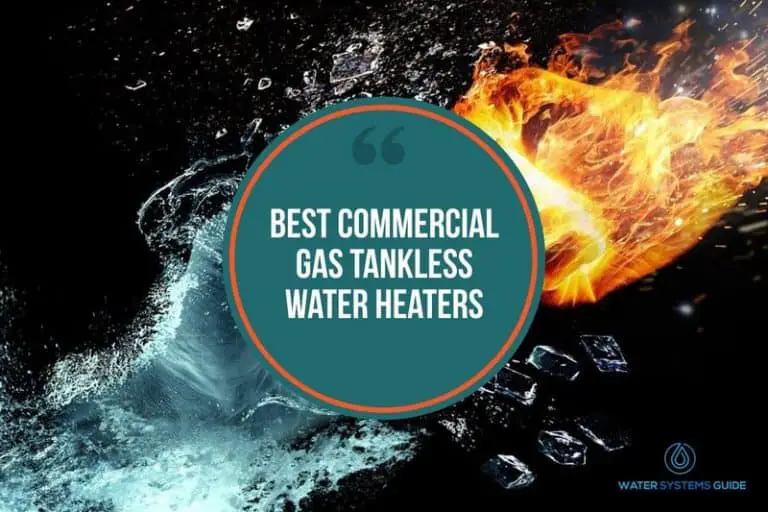
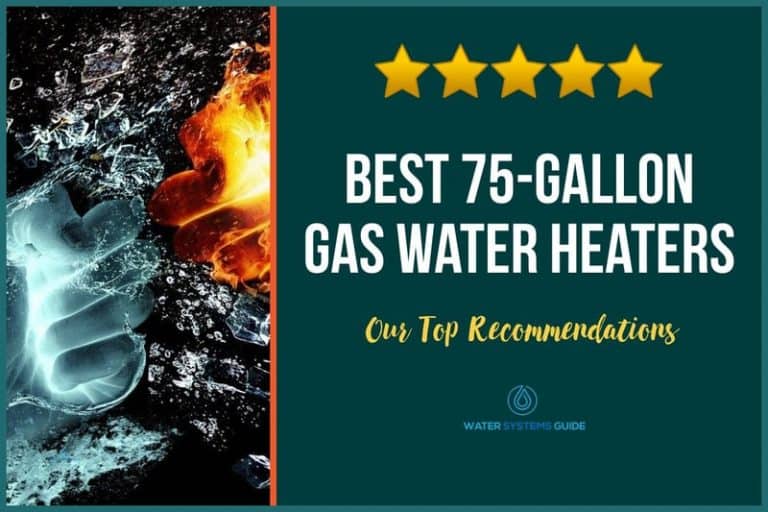
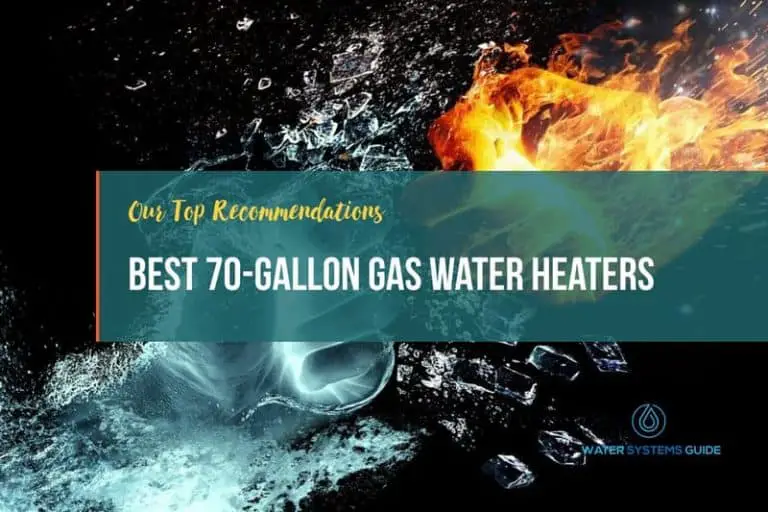
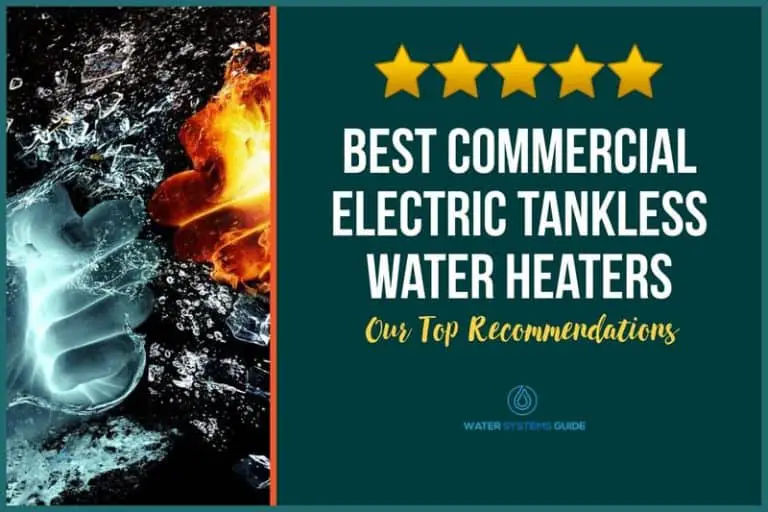
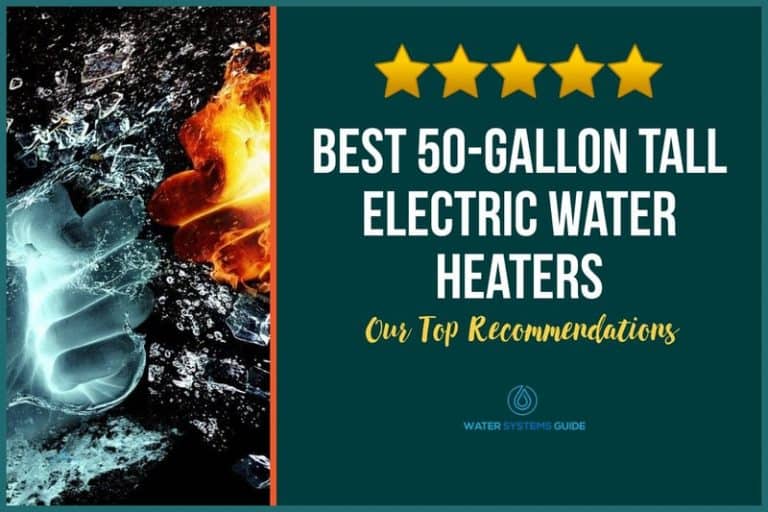
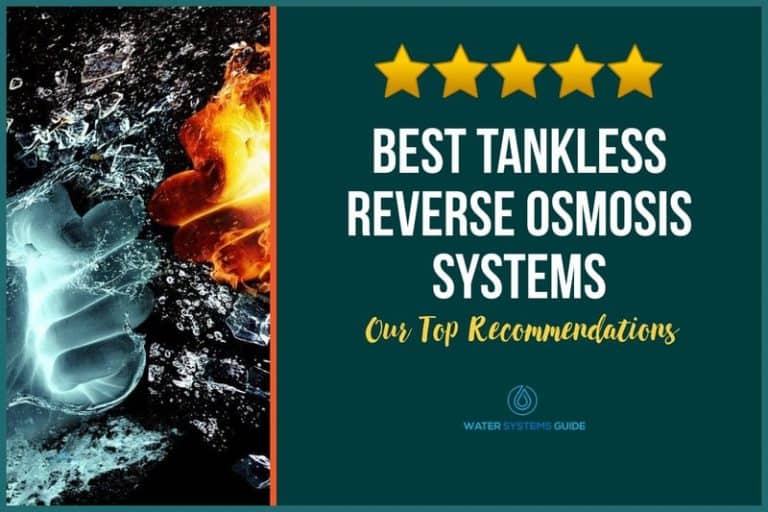
Систематическая подготовка домашних заданий имеет большое значение в образовательном процессе.
Домашняя работа помогает повторить пройденное и лучше понять темы.
В результате ученики формируют дисциплину.
Регулярные задания помогают научиться грамотно распределять нагрузку.
https://resh.me/6-klass/matematika/vilenkin-zhohov/
Кроме того, домашняя работа формирует навыки анализа.
Школьники оказываются спокойными на занятиях.
Со временем выполнение заданий благоприятно сказывается на общую успеваемость.
В итоге домашние задания играют значимую роль школьного обучения.
This website provides a wide range of engaging and helpful information.
Visitors will discover content on many topics.
All materials are well-structured and easy to understand.
The site is regularly updated with new materials.
https://labellefolie.fr/la-belle-folie-promet-des-surprises-pour-la-reprise/
This makes it a useful destination for everyday use.
If you need quick answers or in-depth insights, the platform meets different needs.
The information is delivered in a accessible and reader-friendly format.
As a result, this site continues to be helpful for a wide audience.
Life moves differently depending on how we feel inside, and health is the reason why.
We’re given rules about eating, resting, moving—yet comprehension rarely follows the instruction.
What is deeply personal gets handed out as though it applies to everyone equally.
Fatigue arrives, or tension, or a shift in appetite—signals the body offers if we slow down enough to notice.
Equilibrium isn’t something we arrive at—it’s something we keep tending to.
Observation teaches us what the body is genuinely asking for, often before we think to ask.
Eating, walking, breathing stop being automatic and start becoming places of genuine contact.
That kind of understanding rarely comes from checklists or strict regimes.
When choosing presence over pressure starts to feel like the only sensible direction.
Consider this an opening—a chance to come back to yourself.
Working with the body rather than over it.
Slowing down reveals patterns that no rapid fix ever could.
And when we follow that thread carefully enough, it leads to something specific.
That’s precisely why it makes sense to look more closely at vidalista in hypertension.
Стильный вид создает первое мнение о человеке.
Ваш образ влияет на восприятие вас окружающими мгновенно.
Хорошее самочувствие в подобранном образе укрепляет личную самооценку.
Этот подход демонстрирует ваш уровень профессионализма и внимание к деталям.
https://links.luxepodium.com/lhlGN4KLy/
Через одежду вы имеете шанс проявить свою индивидуальность и стиль.
Люди неосознанно оценивают опрятных людей как более компетентных.
Следовательно, инвестиции в свой образ — это вклад в ваше будущее.
Reputation management is the deliberate practice of influencing public perceptions of a brand or person.
It involves continuously tracking what is being discussed about you online.
The goal is to highlight favorable content and mitigate any damaging comments or criticism.
This frequently includes responding to customer reviews on various platforms.
https://chicstyle2.blogspot.com/2026/02/the-currency-of-trust-why-reputation.html
A vital part is managing search engine listings for associated search terms.
Effective reputation management helps build trust and protect a strong digital image.
Ultimately, it is an crucial strategy for any contemporary business or public figure.
The platform has a great deal of helpful content.
Visitors can locate in-depth posts on numerous topics.
The resources is laid out in a simple manner.
This makes it a ideal spot for anyone wanting knowledge.
http://gladaankan.com